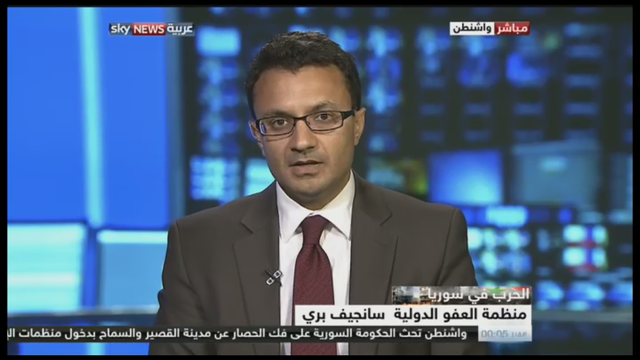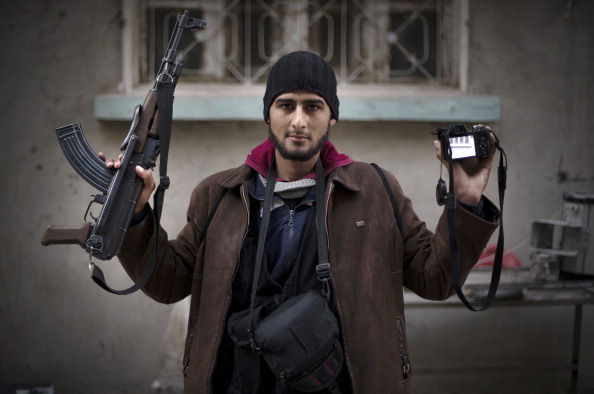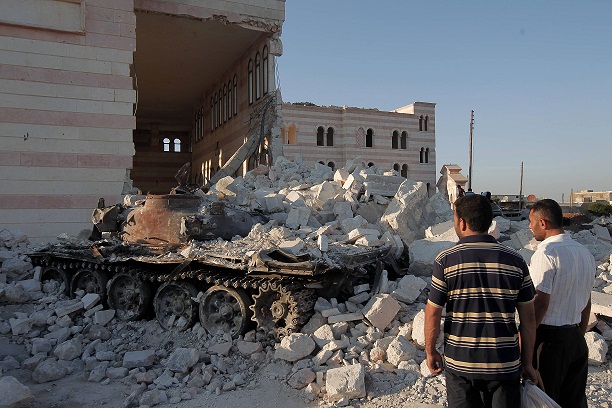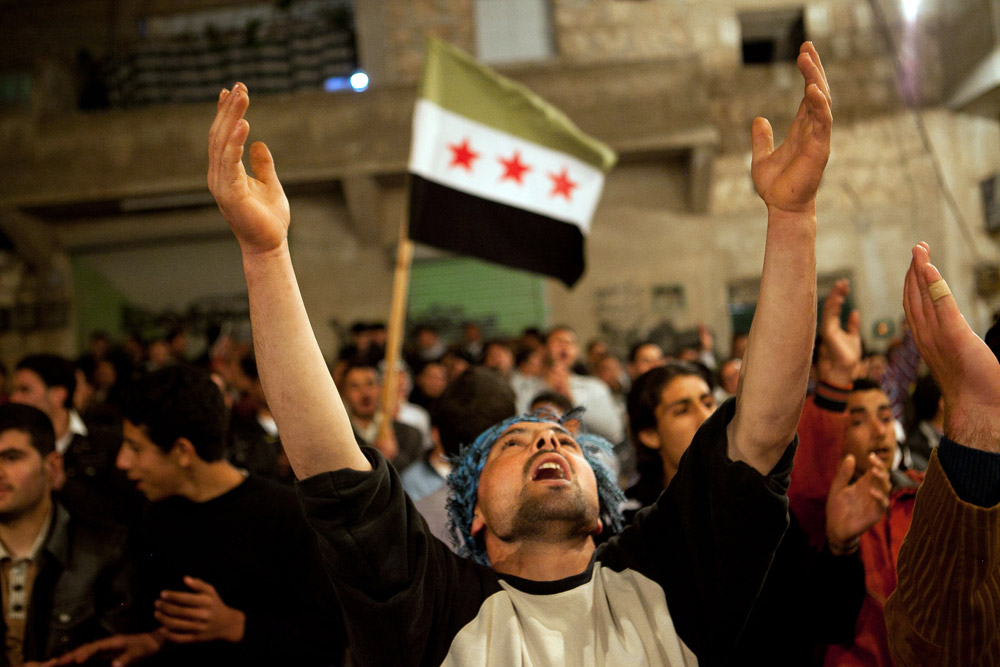Yesterday, I joined the team at Sky News Arabia for a live discussion of the latest report on Syria by an independent UN panel. Special thanks to Sky News producer Arwa Sawan, reporter Joseph Khawly, and anchor Amer Abdel Aziz for giving Amnesty International USA an opportunity to share our analysis of the grave human rights situation.
The report (PDF) is a catalog of violence, suffering, and geopolitical developments, focusing on events between January 15th and May 15th of this year. It was produced by the Independent International Commission of Inquiry on the Syrian Arab Republic, established by the UN Human Rights Council in 2011.




